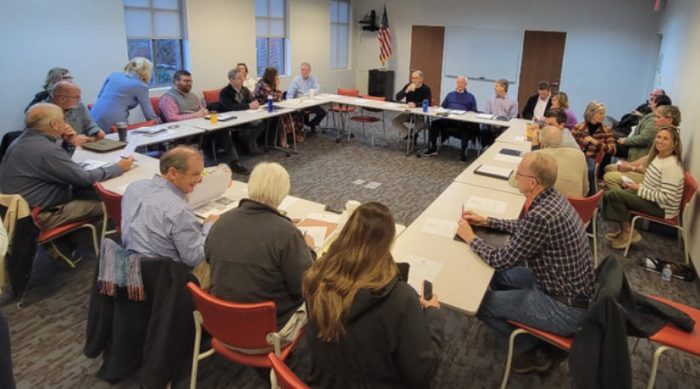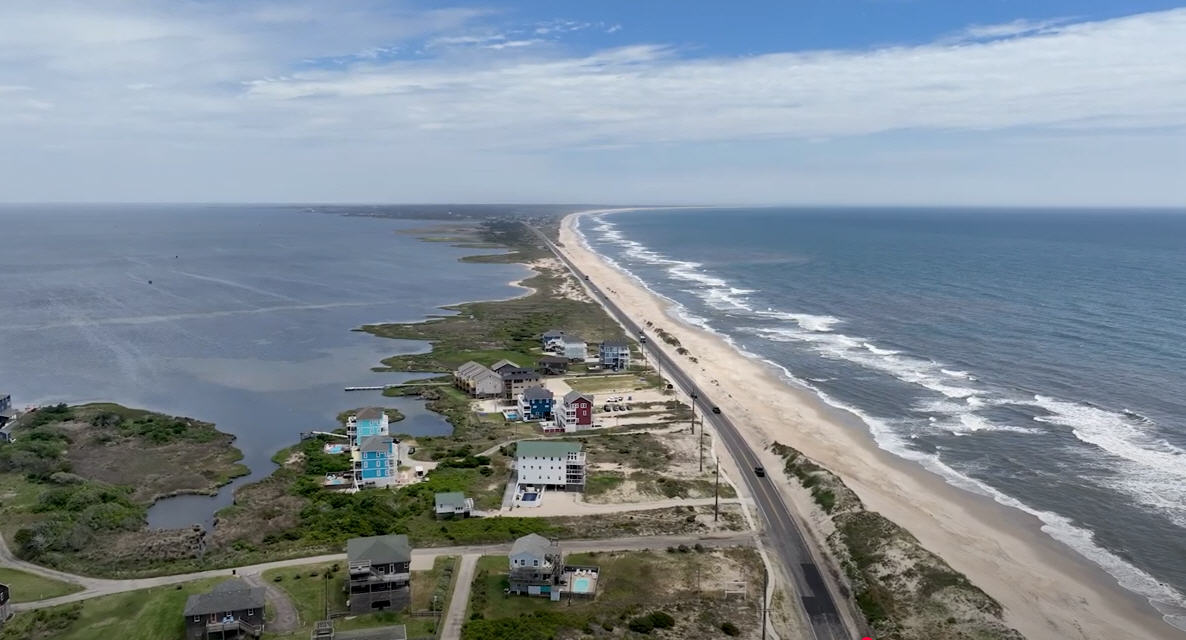Dare Housing Task Force wants to incorporate more community voices in the process

From OuterBanksVoice.com
Meeting one week after the county commissioners voted to cut ties with its remaining affordable housing partner and return $35 million in housing funds to the state, the Dare County Housing Task Force made several decisions on how to move forward—including one that involves broadening and restructuring the group.
Following the suggestion of County Manager Bobby Outten that “maybe it’s time to make [the Task Force] a more community-led group,” members agreed to return next month with ideas about expanding it to bring in more grassroots voices and constituencies.
Following feedback from Task Force members at the April 16 meeting, Outten acknowledged that currently, the county doesn’t really have its pulse on community sentiment on affordable housing. “Because we don’t have all the solutions, we’re [focused] on cookie-cutter solutions. And cookie-cutter solutions don’t work,” he said.
After suggestions from members that the county seek to amend the legislation that provided the $35 million in state housing funds and not immediately try to return that money, the Task Force agreed on several other steps.
For one thing, it will send a letter to state officials calling for repeal of HB 259, the legislation that conditioned the $35 million in state funding on restricting the ability of municipalities to regulate affordable housing developments. That provision triggered a lawsuit from the county’s six municipalities and a resolution from the Dare Commissioners that they would not abide by those restrictions.
The Task Force also agreed to reach out to the county’s State House delegation and invite them to come to the next meeting to hear feedback, including about changing the legislation.
Early in the meeting, Outten reiterated that the county had cut its ties with private housing partner Coastal Affordable Housing, LLC, adding that “in my view, once we give the [$35 million] back, the legislation awarding it “becomes moot.”
But several Task Force members counseled caution about giving that pile of $35 million back to the state, at least right away.
“I wouldn’t send that money back today,” said Malcolm Fearing. Manteo Mayor Sherry Wickstrom asked if the county could work to get the law changed and keep the $35 million, “which we absolutely do need for housing…We’re just getting a lot of feedback on it.” Tess Judge echoed those sentiments, advocating that the county “not immediately send that money back.”
Kill Devil Hills Mayor John Windley suggested that “maybe we should invite some of [the state] legislators to attend one of these meetings,” a sentiment echoed by Dare County School Board Member Ron Payne, who added that “Thirty-five million dollars, that’s a lot of money.”
Another theme that was emerged during the 90-minute meeting Task Force meeting was the sense that Dare County communities have different needs, perspectives and outlooks regarding affordable housing.
“All our towns are unique,” said Windley, suggesting that each municipality give a presentation about their housing needs and efforts at a future meeting of the Task Force.
Not long after that, Outten broached the idea of restructuring the Task Force to be a more “community-led” body, adding that the process should go “from the bottom up…We’ve got to get more community interaction and community engagement.”
Piggybacking on that idea, Fearing noted that “what I don’t see” in the current makeup of the Task Force “is any representation from the minority community.”
The idea of expanding the conversation was echoed by Jeff Schwartzenberg, Community Engagement Manager for the Outer Banks Visitors Bureau, who cited the approach of the Dare County Tourism Board Special Committee as an example.
“There’s probably no idea that’s a bad idea at this point,” he said.
The sense of the meeting was that Task Force members would come to next month’s gathering prepared to follow up more thoroughly on reshaping the group and opening it up to more community voices.
One moment of contention at the meeting occurred when Dare County Commissioner Chair Bob Woodard briefly brought up his view that the NIMBY (Not in My Backyard) factor was a reason why housing projects failed in several Dare County communities. Wickstrom responded that “It isn’t about NIMBY…I think it’s about looking to the future.”
At the opening of the meeting, Woodard stated that “We have had really good success with Task Forces,” mentioning the Oregon Inlet Task Force and the NC12 Task Force. “Let’s make it a third success here.”







